 In life we expect outgoing people to be better at tasks like networking or sales. We use terms like "extrovert" and "Type-A personality" to describe what many of us believe to be true about many of the people we work with … that seemingly natural parts of their personality make them ideal candidates to do certain types of jobs. Chances are as you have built your own small business, a part of any success you have had has come from your own natural abilities and skills.
In life we expect outgoing people to be better at tasks like networking or sales. We use terms like "extrovert" and "Type-A personality" to describe what many of us believe to be true about many of the people we work with … that seemingly natural parts of their personality make them ideal candidates to do certain types of jobs. Chances are as you have built your own small business, a part of any success you have had has come from your own natural abilities and skills.
The problem with how we think about our natural abilities (and those of others) is that it also forces us to consider that the exact opposite must be true as well. After all, if you can be naturally good at some things, surely you could be naturally bad at other things, right? And being naturally bad at something is a great excuse to just avoid doing something. If you're "not good with numbers" then you get someone else to handle that. Or if you're not a technology guy (or girl) then you can justify not investing in better systems to optimize your business.
This is just silly. Having an inherent ability certainly helps, but it is not a prerequisite – particularly when you consider social media. Many small business owners falsely believe that the more technical you are, the more readily you should be able to use social media. Actually, being good at using social media has very little to do with your technical ability. It does, however, require learning some basic principles and to some degree developing the right instincts. These are guiding principles that anyone who effectively uses social media already knows – but will dramatically help you to use social media like an expert, even if you still think Java is a kind of coffee …
- Be conversational. The first and most important instinct to develop when it comes to social media can be surprisingly difficult for some, and that is to speak, write, and share content in your own real voice. This means using conversational language and writing as you would speak. Social media is rarely a place for marketing or legal type of language – so leave those for your important documents and get as real as you can whenever you post anything.
- Listen and respond consistently. It is often said that the basis of social media comes from listening. You insert any cliché here that you like about having twice as many ears as mouths … but the point is that through listening to what people are saying you will know what you need to respond to – particularly if someone posts a message about your business or industry and is seeking a response. The more often you respond, the more social credibility you can build for your organization as one that is listening and cares about the sentiment of the group.
- Proactively comment and share. Responding to questions that involve you or your business is the relatively easy part. More difficult is to consistently find reasons to proactively share a comment on a blog post or share content that you find relevant or interesting (particularly when it has nothing to do with your business).
- Use questions instead of statements. Open ended questions are a boon in social media, because they invite interaction. So instead of just posting statements of your thoughts or beliefs, how about turning them into questions and seeing who might have an interesting point of view to share. You'll find this one shift makes a big difference in your level of engagement in the long term.
- Participate with those who share your passion. There are hundreds of thousands of niche groups on sites like Facebook and also independently created through blogs and sites like Ning.com. There are bound to be groups of people who are in your industry or perhaps even just share the same passions as you. Now there are ways to find them, and doing so can give you an instant community to belong to.
- Support online relationships with offline interactions. It would be a sad life if we could get everything we needed just from the web. Despite our advances in technology, there remains no substitute for knowing people in person, so whenever you can support anything you do with social media by going to a local event or meeting people, that would go a long way towards that.
- Invest in karma. The last piece of advice is around karma – or the idea that "what goes around comes around." It has been talked about often when it comes to social media, but what most power users of social tools online know is that doing things to help people, sharing knowledge and generally being open to those who connect with you are all good things that pay off in an uncertain way at some point in the future.
There are likely other tips from social media power users on how to build your ability to succeed, but these 7 essentials should help you to get a good start.
NOTE: This post is part of Small Business Friday (SBF) – a featured section on this blog to share marketing ideas for small businesses and was originally published on the American Express Open Forum site.







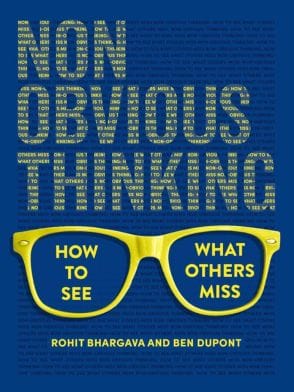





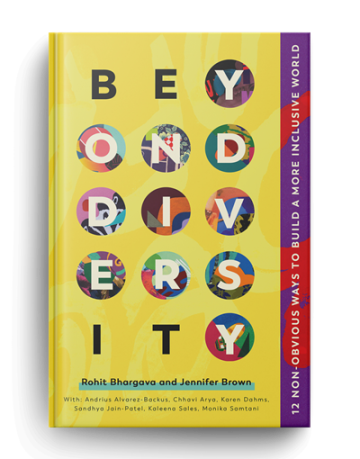
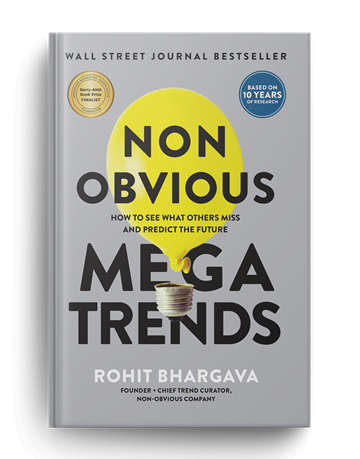
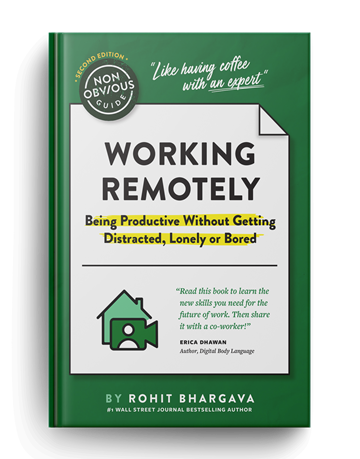


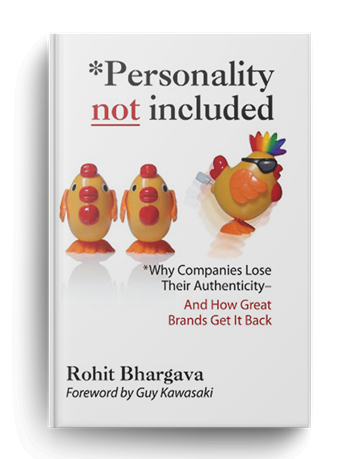



Good reminder. It might not be what the professionals want to hear someone say, but if you’re a good conversationalist, a gregarious socializer in real life, chances are you’re already a social media star before you’ve even begun.
Thank you for this post. 🙂
You’re right Derek, even if you are not good at social media, there’s still hope left to you. Because learning to be a conversational person is harder than a social media geek.
Social media marketing programs usually center on efforts to create content that attracts attention, generates online conversations, and encourages readers to share it with their social networks. The message spreads from user to user and presumably resonates because it is coming from a trusted source, as opposed to the brand or company itself.
Rohit, I work with many people who like myself came from a corporate background and are now small business owners. One of the toughest challenges many face is your first point – be conversational. They often require coaching to grow comfortable with removing the corporate veil and simply being real. I never grow tired of watching the transformation which ultimately leads to them being comfortable with other risks in their business. As you noted we all have the capacity to learn and as a business owner you have an opportunity to strengthen your areas of weakness and constantly challenge yourself with new things.
I absolutely agree with your social media suggestions. I’ve heard it said that social media is like being at a big cookout. You’d no doubt get to know others (and they you) by being conversational rather than talking in techno speak, and by asking questions and listening to the responses, so that you have meaningful participation in the conversation. Social media gives businesses an opportunity to “get real” on a local basis and, in the process generate interest in what their business is all about.
I especially enjoy #7 – Invest in Karma. Freely giving away content is helping and sharing with the community. I have noticed, the more I freely give valuable content, the more my network is willing to help me grow.
I found this very helpful even though I use social media all the time. It’s a good outline to incorporate social media into your business/marketing.
“the transformation which ultimately leads to them being comfortable with other risks in their business” – wow, that’s great, Karen! I really am interested in the effect that social media has on a person’s life, and I think you’ve got a point there. It seems rather odd to think about getting better at life through online interaction, but the truth is that the medium does change us.
I always look for actual examples of companies making this work. One that i came across was USAA — leveraging the Austin based Bazaarvoice platform. You might think of their industry (finance, services, heaviliy regulated) as a last bastion of resistance. Instead i found a team of social media experts who focus on their mission of superior customer service and have made Social Media an integral part of their marketing plan. Using new ideas to improve the customer experience is what resonates with me.
The second fun example was the one of the restaurant who printed (some very bad) customer comments on tshirts that the waitstaff wore. It was their way of showing that they take customer feedback seriously. A creative way to focus customer and employee on the mission using social media.
Rochester Fences build the highest quality fences from the highest quality of materials of your choice fences to surround a pool, backyard, frontyard, or dumpsters.
These are great tips! Conversational language in social media is definitely key. It took some time for me to stop sounding so formal in my communication!
There is some great stuff in this article, but I’m honestly a little thrown off by the assertion that you can learn/acquire an instinct. Instinct is a quality that you are born with. You can’t learn instinct. The word “skill” would have been a much better choice.
So simple, but so forgotten. Great piece
These are great, thank you. I have to say that in my experience with others that #3 and #4 seem to be the most challenging as many just want to get their information out there and neglect to realize the effectiveness of being involved AND getting others involved!
Thanks Derek for sharing this insightful post! It’s great to know the ins & outs of social media networking!
I certainly wanted some guidelines to do my business ,anyway this is wonderful idea,Thanks
Thanks and Regards/-
Jason Webb